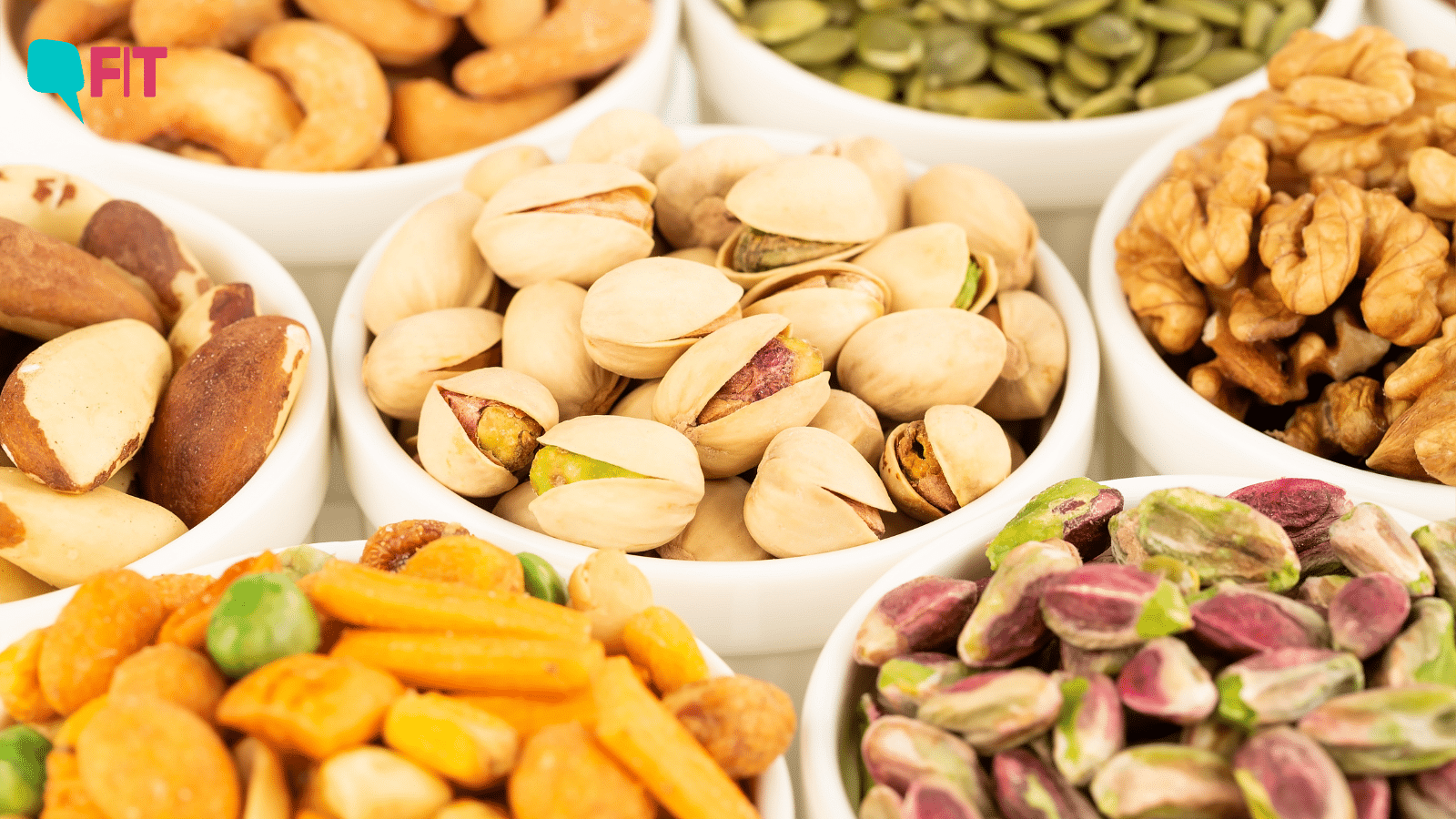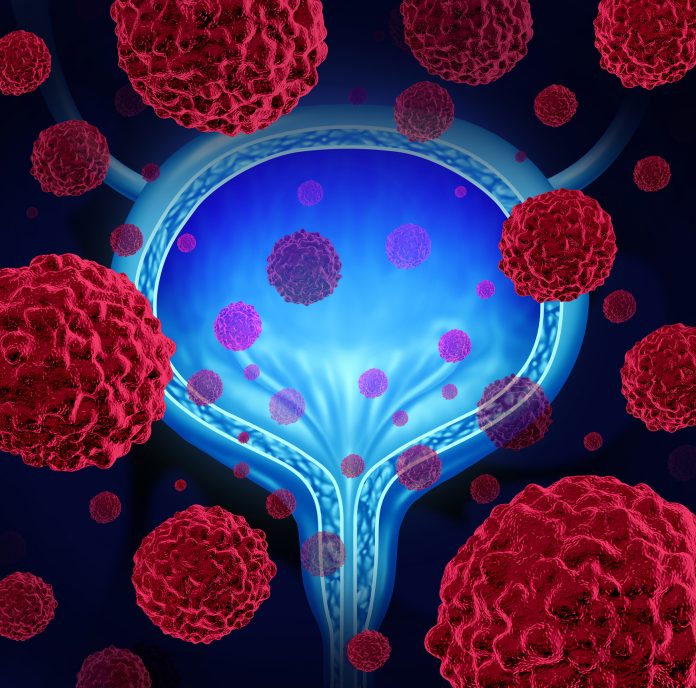A nutritionist answers questions about different kinds of nuts and how to incorporate them in your diet.
Published:

According to the United States Department of Agriculture, “Nuts are actually fruits. They are defined as dry, single-seeded fruits that have a high oil content. They are usually enclosed in a leathery or solid outer layer.”
In botany terms, nuts are strictly a particular kind of dry fruit that have a single seed, a hard shell, and a protective husk.
In our everyday lives, almonds, Brazil nuts, cashew nuts, hazelnuts, macadamia nuts, pecans, pine nuts, pistachio, and walnuts are some commonly consumed nuts.
What Makes Nuts Special?
Nuts are nutrient-dense and quite healthy for us. Here are some interesting facts about nuts:
Rich Source of Protein
Nuts are high in protein. Every 1 ounce or 28 g of nuts contains 6 g protein.
Indian diets are often short on protein and it’s an excellent choice to add nuts as a source of protein, especially for vegetarians.
Whole nuts are now also processed to make nut milk which is an excellent substitute for persons following a vegan lifestyle or for those who are lactose intolerant.
Good Fats
Seeds and nuts like walnuts are rich sources of alpha-linolenic acid present in plant-based omega 3 fatty acids.
Omega 3 fatty acids help in managing brain health, heart health, and metabolic disorders as they work on inflammation. It is best for those with vegetarian diets to consume nuts and seeds regularly.
Good Source of Vitamin-E
Nuts, especially almonds, are excellent sources of vitamin E.
Vitamin E is an antioxidant and will help the body to keep out the oxidants.
Loaded With Fiber
Nuts are high in insoluble fiber which also gives an advantage to increase the gut transit time for foods as well as give a better satiety. This would be beneficial to avoid constipation as well.
The most important benefit of consuming nuts is that they will keep you satiated for a longer time, help in losing weight, and will ensure that you get optimum energy from its protein and fat sources.
Ways To Add Nuts In Your Diet
Consuming Nuts As It Is
A handful of nuts, approximately 28-30 g, can serve as a mid-meal snack to stop binge eating. Eating nuts as a late-night snack when you are awake is a good idea too.
Eating nuts as a late-night snack when you are awake is a good idea too.
Adding It To Salads Or Smoothie Bowls
Nuts can act as a great kickstart to the day. Add it to your smoothie bowls to ensure you get enough protein, fiber, and good fats.
At the same time, it can be wonderful addition to give that extra crunch to your salads and increase the nutrition quotient of the same.
Nuts can act as a great kickstart to the day.
Prepare Dressings
A salad can get more interesting when you add dressings to it. If you want to make it nutritious too, its best to add nuts which will make the dressing creamy and the salads healthy.
For example, prepare an Asian salad with mixed greens, cabbage, tofu, and drizzle it with some almond dressing.
Prepare dressings with nuts.
Use It As Spreads
We all know the yummy combination of chocolate and hazelnuts that has gained so much popularity. The fun part is that now you can make the spreads at home too!
Just churn the nuts with herbs or chocolate or coffee and you can get innovative with the recipe.
Apply this to the chapatis or toast and it can be excellent breakfast to carry as tiffin options too.
Nuts in spreads are a great idea.
Nutrition Bar
Nutrition bars have lately been gaining a lot of popularity. Nuts are an excellent choice for these bars, along with seeds and dry fruits, since they can work as a mid-meal snack to ensure the right amount of nutrition without bingeing.
Just be sure that the sweetener is natural honey, jaggery, or dates and that the use of high fructose corn syrup is avoided.
Nuts are an excellent choice for nutrition bars.
Nuts are superfoods and you should make it a point to include at least 28 g of the same in your diet everyday.
(Avantii Deshpaande is a food science and nutrition expert with over 20 years of experience in the field. You can find her on Instagram at @nutritionist.avanti.)










